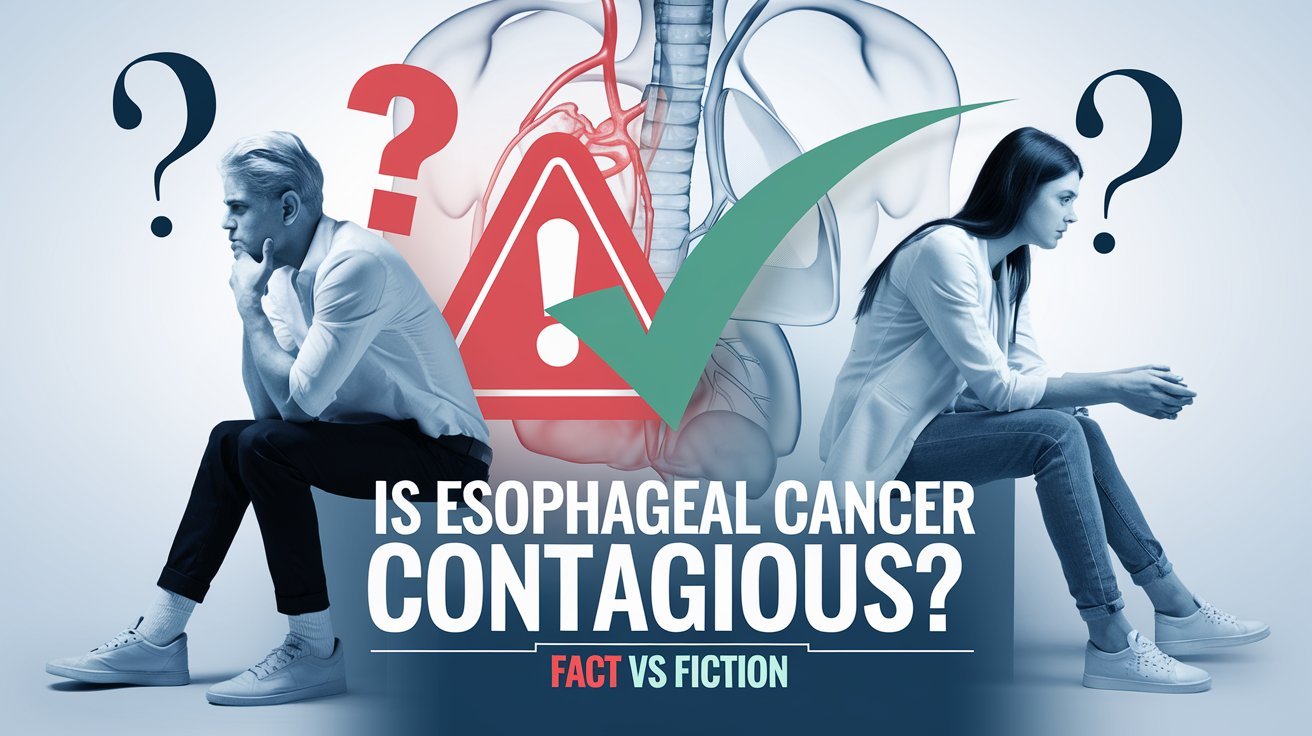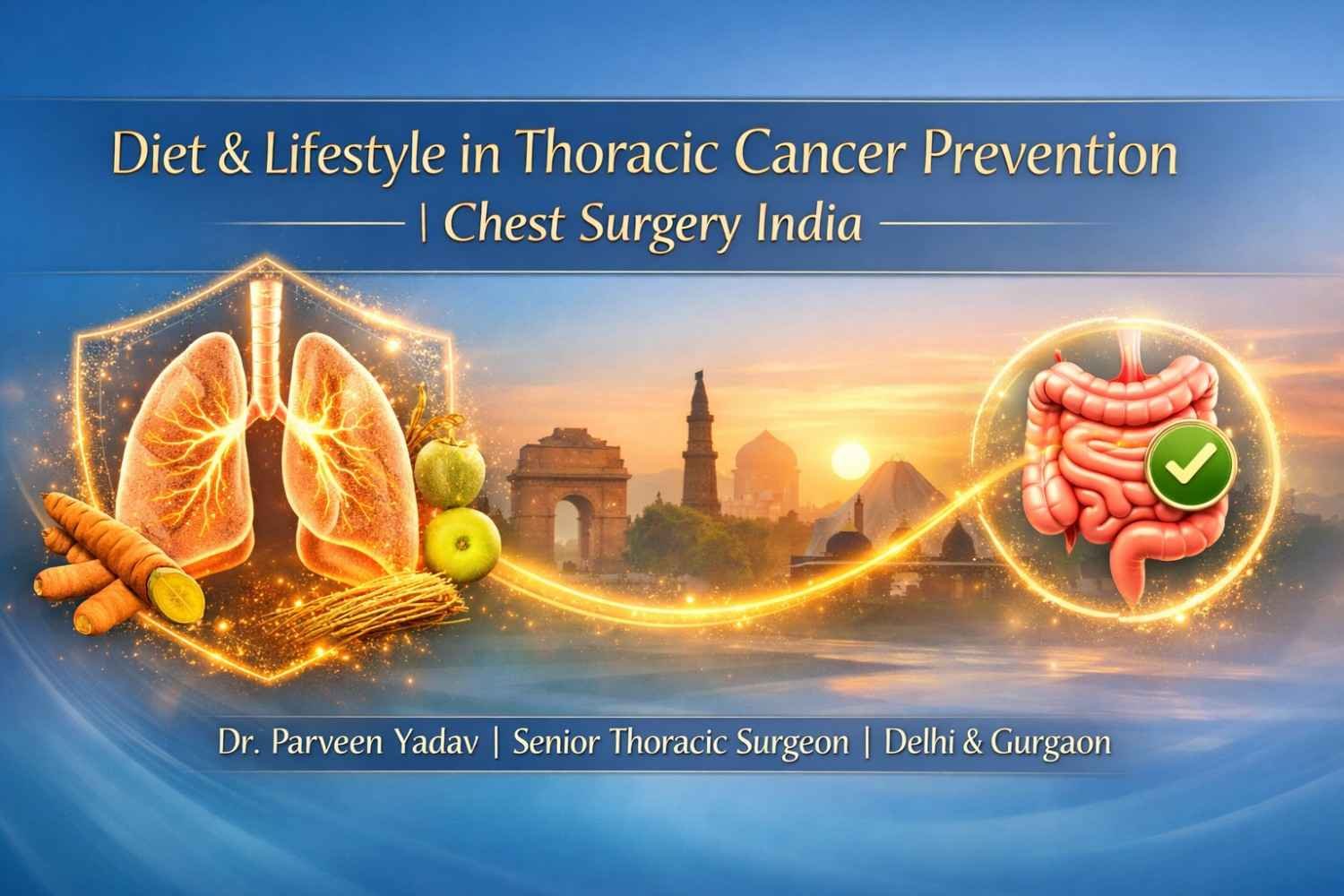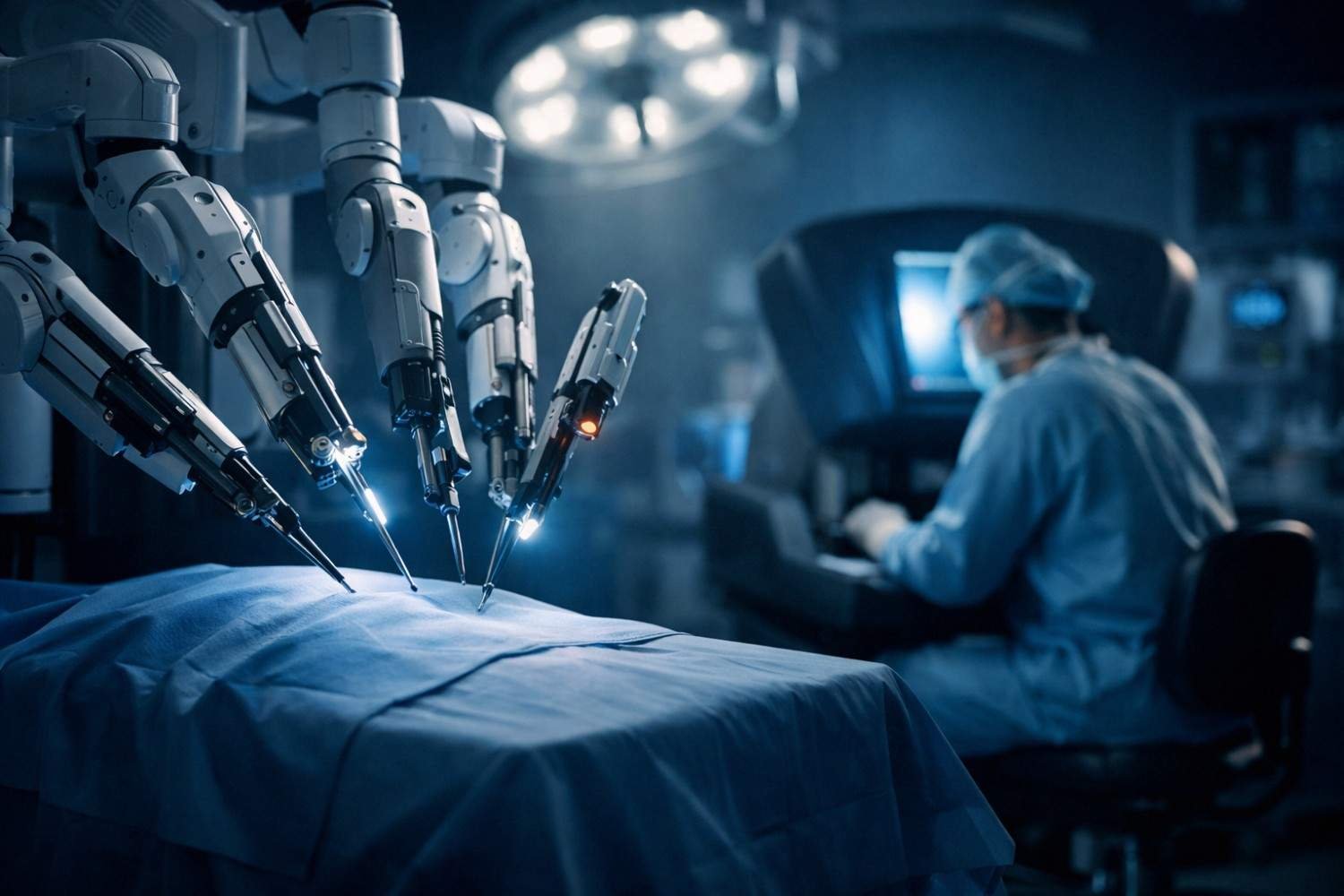

As a cancer specialist at Chest Surgery India in Gurgaon, I often meet patients and families gripped by fear and confusion when diagnosed with esophageal cancer. One question I hear repeatedly is, "Can we catch esophageal cancer from our loved ones?" Imagine a wife hesitating to share meals with her husband or a mother worrying about hugging her child after her diagnosis. These fears stem from myths, not facts.
In this blog, I, Dr. Parveen Yadav, will clarify the truth about esophageal cancer contagion. My goal is to empower you with science-backed information, debunk harmful myths, and guide you toward timely medical care. Let's start by understanding what esophageal cancer truly is.
Your Food Pipe and Its Role
The esophagus is a muscular tube linking your throat to your stomach. Its job is simple: carry food and liquids to your stomach for digestion. When cells in this tube grow uncontrollably, they form tumors, leading to esophageal cancer.
There are two main types:
Early detection saves lives. Look out for:
Pro Tip: Do not ignore persistent symptoms. Visit a specialist if these last longer than 2 weeks.
The Short Answer: No, It's Not Contagious
Let me say this clearly: Esophageal cancer cannot spread from person to person. You won't get it by sharing meals, hugging, kissing, or caring for a patient. Unlike flu or tuberculosis, cancer cells cannot survive outside the human body or infect others.
Example: A farmer in Haryana once believed his brother "gave" him esophageal cancer. Tests revealed both had a history of chewing tobacco—a major risk factor, not contagion.
Let me explain this clearly: When we say cancer "spreads," we're talking about metastasis—a process where cancer cells split away from the original tumor, travel via the blood or lymph system, and form new tumors in other organs (like the liver or lungs). This is not the same as contagion.
Imagine your body as a garden. If a weed (cancer) grows in one corner, it can drop seeds that float to other parts of the garden. But those seeds can't jump into another person's garden. Similarly, esophageal cancer cells cannot survive outside the body or infect others.
Why Contagion is a Myth
Contagious diseases, like COVID-19 or tuberculosis, spread through viruses, bacteria, or fungi. Cancer, however, is caused by genetic mutations in your own cells. These mutated cells don't have the ability to infect others.
Real-Life Example: A patient's daughter once asked me, "I live with my father—will I get his cancer?" I reassured her that living with or caring for a cancer patient poses zero risk of "catching" the disease.
I've seen families stop eating together out of fear. Let me clarify: Esophageal cancer is not transmitted through saliva, utensils, or food. Even if cancer cells enter another person's body (which is nearly impossible), their immune system would destroy them immediately.
Isolation is unnecessary and harmful. Patients need emotional support, not distance. You can hug them, share meals, and care for them without any risk.
A family history of esophageal cancer usually points to shared habits (like tobacco use) or genetic factors—not contagion. For instance, a Punjabi family I treated had three members with esophageal cancer. Tests revealed all smoked hookah for decades—a habit, not heredity, was the culprit.
Chronic heartburn? Don't ignore it! Untreated GERD can lead to Barrett's esophagus, a precancerous condition. Medications or lifestyle adjustments can control acid reflux.
If you have:
Many patients dismiss symptoms until it's too late. A 58-year-old farmer from Rajasthan thought his swallowing trouble was "just aging." By the time he visited us, the cancer had advanced.
My Advice: If symptoms last over 2 weeks, consult a specialist immediately. Early-stage esophageal cancer is treatable with surgery, radiation, or targeted therapy.
Esophageal cancer is not contagious, but fear and myths can be. By understanding the real causes—tobacco, alcohol, acid reflux—you can take charge of your health.
If you or a loved one has symptoms, don't let fear delay action. At Chest Surgery India, Gurgaon, we combine advanced treatments with compassionate care. Remember, early detection can turn the tide.
Take the Next Step with Confidence
Consult Dr. Parveen Yadav Today
Whether you have symptoms, need a second opinion, or want to discuss prevention strategies, I'm here to help.
"Don't let doubts or myths hold you back. Book an appointment at Chest Surgery India, Gurgaon, by calling +91 9540210956 or visiting www.chestsurgeryindia.com. Together, we can fight esophageal cancer with knowledge and expertise."
1. Can Kissing Transmit Esophageal Cancer?
No. Kissing spreads germs, not cancer cells.
2. Is Esophageal Cancer Hereditary?
Rarely. Only 5-10% of cases have a genetic link. Most are due to lifestyle factors.
3. Are Esophageal Cancer Patients Kept in Isolation?
Never! Isolation is only for contagious diseases. Cancer patients need love, not loneliness.
4. Can Sharing Clothes or Towels Spread Esophageal Cancer?
No. Esophageal cancer cells cannot survive on surfaces like fabrics, utensils, or skin. Even if they did, your immune system would neutralize them instantly. You can safely share household items with a patient.
5. If I've Had HPV or H. Pylori, Will I Get Esophageal Cancer?
Not necessarily. While HPV and H. pylori infections are linked to some cancer risks, most people with these infections don't develop cancer. Regular check-ups and treating these infections early can minimize risks. For peace of mind, discuss screening options with your doctor.

18+ Yrs Exp | 5,700+ Thoracic & Robotic Cancer Surgeries
Dr. Parveen Yadav is a Director and Senior Consultant in Thoracic and Surgical Oncology, specializing in minimally invasive and robotic lung and esophageal surgeries, with advanced training from AIIMS and Tata Memorial Hospital.
View Full Profile Pain After Thoracic Surgery: Tips for Smooth Recovery
Pain After Thoracic Surgery: Tips for Smooth Recovery
 Diet & Lifestyle for Thoracic Cancer Prevention | Dr. Parveen Yadav
Diet & Lifestyle for Thoracic Cancer Prevention | Dr. Parveen Yadav
 Robotic Thoracic Surgery: How Da Vinci Technology is Revolutionizing Chest Procedures
Robotic Thoracic Surgery: How Da Vinci Technology is Revolutionizing Chest Procedures
Struggling with pain after chest surgery? Dr. Parveen Yadav shares expert recovery tips, causes of shoulder pain, PTPS signs, and what your discharge sheet won't tell you.
Discover how diet, breathing exercises & daily habits help prevent and recover from thoracic cancer. Expert insights from Dr. Parveen Yadav, Chest Surgery India
Discover how Da Vinci robotic surgery is transforming chest procedures in Gurgaon. Less pain, faster recovery & expert care by a certified thoracic surgeon
Copyright 2026 © Dr .Parveen Yadav all rights reserved.
Proudly Scaled by Public Media Solution!